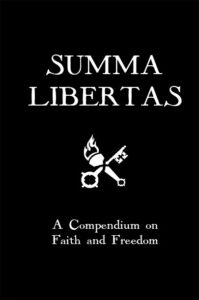- December 16, 2021
- Posted by: Code
- Categories:
No Comments

 When Our Lord was tempted in the desert, the devil offered Him “all the kingdoms of the world and their glory” (Mt 4:8-9). It stands to reason that Satan was able to offer Jesus the earthly kingdoms because he owned them. History has repeatedly demonstrated that the state remains a stronghold of Satan’s evil works through man’s lust for power. What then is a Christian to do while living under earthly authority?
When Our Lord was tempted in the desert, the devil offered Him “all the kingdoms of the world and their glory” (Mt 4:8-9). It stands to reason that Satan was able to offer Jesus the earthly kingdoms because he owned them. History has repeatedly demonstrated that the state remains a stronghold of Satan’s evil works through man’s lust for power. What then is a Christian to do while living under earthly authority?Our Lord’s rejection of Satan’s temptation teaches the Christian to follow Christ alone because His Kingdom is “not of this world.” (Jn 18:36). Saints throughout history, from Saint Peter to Venerable Fulton Sheen, have echoed Christ’s example by rejecting the desire for earthly power and freely choosing to love God and neighbor despite living within modern day kingdoms replete with evil influence. They teach us: “We must obey God rather than men” (Acts 5:29), “An unjust law is no law at all” (Saint Augustine of Hippo), and not to “wait for leaders; do it alone, person to person” (Saint Teresa of Calcutta).
Following the method Saint Thomas Aquinas used in Summa Theologiae, Summa Libertas draws on Sacred Scripture, Sacred Tradition, and the writings of the saints to guide a sound case for a libertarian Christianity. Readers will find that not only are the principles of liberty compatible with the faith—they are, in fact, necessary.

